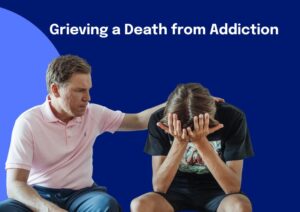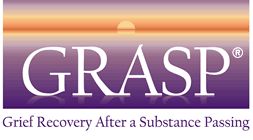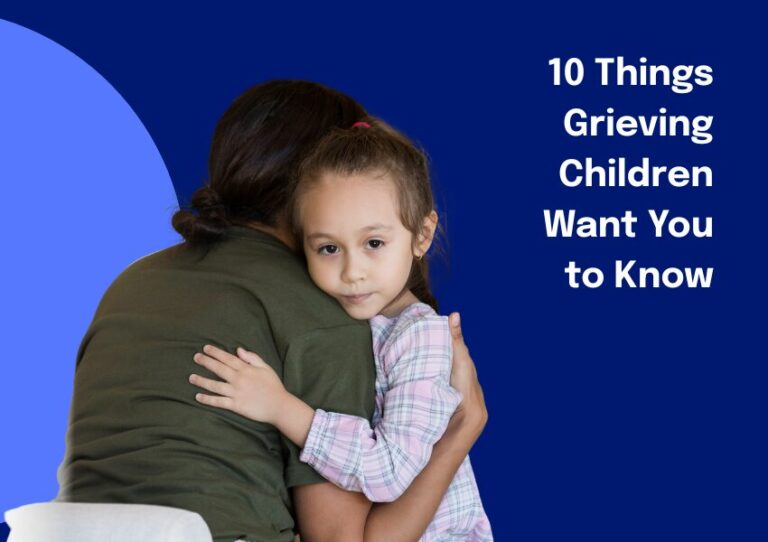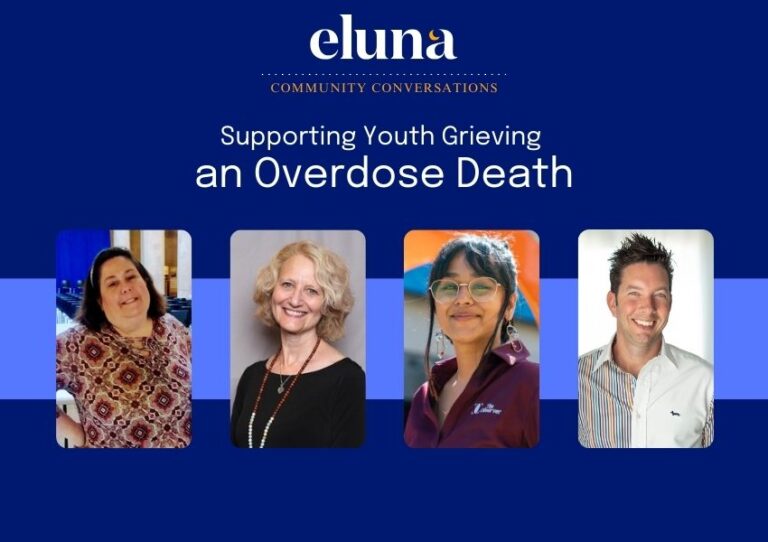Grieving a Death from Addiction
 Grief, in all the forms it takes; stages as some call them, is mostly seen as a negative, painful thing. A process we go through with ups and downs. Grief is loss and loss is part of life. We have all lost things throughout our lives, big things, little things, important things and so on.
Grief, in all the forms it takes; stages as some call them, is mostly seen as a negative, painful thing. A process we go through with ups and downs. Grief is loss and loss is part of life. We have all lost things throughout our lives, big things, little things, important things and so on.
The grief we talk about here is real, gut wrenching pain, accompanied by all sorts of other emotions such as guilt, shame, regrets – all the “what ifs”, “should haves” that do nothing but drag us down farther. It is what it is and we go on from here. To lose a person you love deeply, someone who has been an important part of your life…maybe the MOST important part of your life is devastating. Really, there is no word for it that equals the intensity of the feeling.
Everyone responds differently to their loss, and this fact makes it harder to understand each other when we find ourselves comparing her loss, to my loss, to his loss. We must try not to do that. Even if all experiences, all relationships were the same, each person’s response would still be different, and add to that, different from day to day, moment to moment!
Then there’s the gender differences involved that most in science acknowledge — and not just in grief, in most areas regarding emotion, communication, sharing, and our willingness to be vulnerable. There’s a reason why many marriages break up over the loss of a child. My opinion is that when our responses don’t jive, we feel badly; like we, or they are not meeting some expectations. Maybe we or they did not love the child enough.
Intellectually most of us know there are differences between the genders in so many ways; that doesn’t mean that when we are off kilter we accept it easily. Men typically have a need to FIX things. When they can’t, as in a situation like this, they may feel they are letting us down, maybe not “strong enough”? Perhaps they close down more because of that? I don’t have the answers to the whys, I just know they exist. I do know that when you are “on the same page” with someone you love deeply about something as important as this, it’s a wonderful feeling. MY PERSON GETS IT! Sometimes that lasts for a day, a week, a month, or never happens. Sometimes it’s that way throughout. We are all different.
There are many things involved in losing a loved one to substance use disorder, accidental overdose, and health issues brought on by use of damaging substances that complicate the grieving process. It is widely acknowledged that to lose a child is the worst possible loss. It is unnatural.
Parents are supposed to precede their children in death. Children are not supposed to die young. These are a few of the things in life that just aren’t “fair”. A huge part of what makes this grief so unique is that many people do not understand the addictive illness that took the life of your loved one. There is blame and shame attached to it. It is oftentimes considered a “choice”, therefore, the person caused it themselves, and moreover; you must’ve had a hand in it because you allowed it to happen!
Pile that on to whatever guilt you are already feeling, along with the incredible pain of your loss, and it’s unimaginable that people are able to go on. Although we understand that life isn’t fair, it is very difficult to accept when it happens to you.There is also the fact that there were months, often years of turmoil, distrust, anger, sadness, pain, hope and disappointment that has preceded the death of your loved one. Sometimes it feels as if you lost the person a little at a time and even though you always hoped you would get them back whole, usually there came a time that you realized it just wasn’t going to happen. So, your dreams for your loved one, for your relationship with them, for their future happiness died bit by bit. But as long as they were alive there was always hope.
So now, they are gone. You begin the real work of grieving, of trying to have a life in which this person, so important to you, is not a part of.
We could go into the “stages” of grief adapted from Elizabeth Kubler Ross’ stages of death and dying, and we probably will at another time. For now, the basics of how most people adapt to, and “recover” from this specific, unique loss is our focus.
Grief Recovery After a Substance Passing can help. Here, we have all traveled the same road and we provide love, comfort, understanding and support to one another. We do this through face to face groups all over the country, and we do it every day, nearly all day on our Facebook GRASP site. We share ideas, experiences, and stories of how to cope. We share our loved ones; their lives, talents, hobbies, pictures, their families, trials and tribulations without fear of judgment or criticism.
We laugh about the things our loved ones said and did, we remember fondly the good memories and sweetness, and we talk about the bad, the heart-breaks, and the agony of waiting for the other shoe to drop while riding that roller coaster from hell. We do all of this in a safe place, and in time, the pain softens…maybe just for a short while, but we begin to feel small pleasures again, appreciate the beauty in life, and realize that there is good here, still.
We talk about our beliefs, our faith, our spirituality, in the ways that it helps us and in the ways that we feel it has failed us, and the continuing merry-go-round that sometimes accompanies it. We share poems, music, stories, that inspire, or connect us to our loved one who has died, hoping to connect others to them as well.
Most of all we try to keep them alive through sharing about them. Some of us aren’t able to do that within our own families or circles in daily life, so we do it here and it works. We know each other’s loved ones by name, by face, by smile, even by their tattoos! Sometimes the funny stories are the best! Other times, the sweet ones, showing our loved ones’ tenderness lift us up more.
Some of us work through grief recovery by doing advocacy work in this area. We want to see change, to prevent others from going through the pain we have been through. Some just seem to always be there with just the right words when someone is hurting especially badly that day, or even having an especially good day. It seems the more we get to know one another, the easier it is to help when someone reaches out. Helping others always seems to help us as well.
We have lessons to learn on this path to recovery. Many lessons. The most important one I find is to be patient with ourselves. There is no schedule for this, and at times we take 3 steps forward and 7 back. We must try to be patient, even those high achievers, those Type A personalities among us, must learn that this has a life of its own and we can only control so much. So when you have that “meltdown” as it’s so often referred to, SO WHAT! Ride it like a wave and let it wash over you. Talk to someone if you feel like it, lie down if you feel like it, take a walk…whatever it is that helps you in that moment is what you should do.
Taking care of ourselves is so very important; especially those of us who have others to take care of. We cannot do it if we are not well. If we are not eating right, sleeping, exercising, doing small things that bring us any tiny bit of pleasure, we will not be able to be there for others.
I know some of you are saying “she must be crazy! I couldn’t even move for weeks, or months!” I surely do understand, because I was one of those people. Sometimes I still am! On a really bad day when I can’t feel anything but my pain, I’ll go to bed and just sit in the dark. I am fortunate to be able to do that, but if people could see our pain on the outside, the way we feel it on the inside, they wouldn’t argue with us! They would rush us to the Intensive Care Unit! We would be bleeding and battered and look like we were on death’s door. THAT is how bad it can sometimes be.
Please, do whatever it takes for you to dig yourself out of this hole; reading, talking, looking at pictures, not looking at pictures, being with your pets, getting creative in your garden, helping someone else, going out for coffee with your friends who do understand, attending support groups, going to church, watch a movie, anything to get OUT of your own head for a bit. The list goes on and on. You will find, I think, that if you MAKE yourself put your shoes on and go outside that door and walk, even if it’s just around the block, you will feel better. All of these suggestions are meant to be used at your pace…when you are ready. But sometimes we still have to force ourselves if we think it might help us.
Educating others is another thing that can help. We are the teachers now. We know (or are learning) more about what took our loved one from us, and we must use that information in the best way we can. For most, telling everyone the truth is a big first step. For some, it came totally naturally. There is NO SHAME in addictive illness. It is no one’s fault. NO ONE CHOSE IT. They are not here to stand up for themselves, so now, if we can, we must do it for them. In all likelihood, they were harder on themselves than anyone anyway.
Another important area in our “teaching” role is to share with those we care about what we need from them. They often don’t know what to do or say. They are afraid of upsetting us. Making us cry. They don’t know how much we cry alone at a song, or food on sale at the grocery store they loved, or a person who looks a little like them, maybe wearing “their” brand…. It’s up to us to educate them. Tell those you love that you WANT to hear them say your loved one’s name, you want to hear stories (even if you already know them), you want to hear others laugh about them, remember them, see love in their face for your loved one.
And always, always, remember…you are not the only one who loves and misses them. On important days and others, acknowledge those friends and family that are hurting as well. Again, in many cases, we will never, ever get OVER this loss, but we can work toward getting through it. For that, we need each other.
To end this short, surface article on grief recovery, the bottom line is we all have our own path; our own schedule and it can change from day to day. Consider yourself very fortunate if you have people in your life who understand you; who “GET IT”. If not, then do your best to find them. They are our greatest gift.
Denise Angela Cullen is a certified grief recovery specialist, and Executive Director of BNM and Grief Recovery After a Substance Passing (GRASP).



